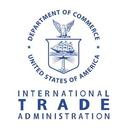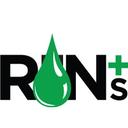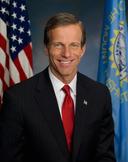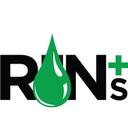Policy
The U.S. EPA released updated small refinery exemption (SRE) data on Dec. 21, reporting that four new SRE petitions have been filed under the Renewable Fuel Standard in the past month. A total of seven SRE petitions are now pending.
The government of British Columbia on Dec. 11 released regulations for its revamped low carbon fuels program, becoming the first jurisdiction in North America to require the use of sustainable aviation fuels (SAF).
2024 North American SAF Conference & Expo now accepting abstracts
SAF Magazine in collaboration with CAAFI, has announced the 2024 North American SAF Conference & Expo will take place Sept. 11-13, 2024, in St. Paul, Minnesota. The event is accepting abstract submissions through May 10.
Rep. Mariannette Miller-Meeks, R-Iowa, on Dec. 7 introduced a bill that aims to allow companies to preserve renewable identification number (RIN) credits under the Renewable Fuel Standard for renewable fuel used in ocean-going vessels.
The USDA’s Rural Business-Cooperative Service in mid-2024 is expected propose a rule to codify the policies and procedures for the Higher Blends Infrastructure Incentive Program, according to information released by the White House OMB.
The California Air Resources Board has identified the Low Carbon Fuel Standard as a critical program to help California achieve carbon neutrality by 2045 and to improve air quality in the state, according to the Low Carbon Fuels Coalition.
Biomass Magazine on Dec. 6 released the agenda for the 17th Annual International Biomass Conference & Expo taking place March 4-6, 2024 at the Greater Richmond Convention Center in Richmond, Virginia.
In an article published in Open Access Government, Reyhaneh Shenassa, chief engineer at the U.S. Department of Energy Bioenergy Technologies Office, explains how U.S. sustainable aviation fuels (SAF) will reduce aviation carbon emissions.
A coalition of over 20 organizations and companies launched the Partnership for Electric Pathways to work with the U.S. EPA to secure a viable pathway for renewable electricity to get credit under EPA's Renewable Fuel Standard program.
The World Trade Organization’s Dispute Settlement Body on Nov. 27 agreed to a request submitted by Indonesia to establish a dispute panel to review countervailing duties imposed by the European Union on imports of biodiesel from Indoenesia.
A coalition of biofuel and farm groups on Nov. 27 released a statement expressing disappointment in the Fifth Circuit Court of Appeals' Nov. 22 decision remanding to the U.S. EPA six small refinery exemption (SRE) requests.
The U.S. Department of Commerce’s International Trade Administration has announced its Renewable Energy and Energy Efficiency Advisory Committee will hold a virtual meeting on Nov. 30. The meeting is open to the public, but registration is required.
President Joe Biden on Nov. 16 signed a temporary spending package, averting a government shutdown that was set to begin at midnight on Nov. 17. The stopgap bill includes a one-year extension of the 2018 Farm Bill.
Reps. Nikki Budzinski, D-Ill., and Zach, Nunn, R-Iowa, on Nov. 15 announced the introduction of a bill that aims to update the USDA’s Biorefinery, Renewable Chemical and Biobased Products Assistance loan guarantee program.
The U.S. House of Representatives on Nov. 14 voted 336 to 95 to approve a temporary spending bill to avert a government shutdown. The stopgap bill includes a one-year extension of the 2018 Farm Bill.
A stopgap spending bill released by House Republicans on Nov. 12 includes a one-year extension of the 2018 Farm Bill, which expired on Sept. 30, 2023. The extension would remain in place through Sept. 30, 2024.
Rep. Max Miller, R-Ohio, on Nov. 7 introduced the bipartisan Farm to Fly Act, which aims to create new markets for U.S. agricultural products and strengthen domestic production of sustainable aviation fuel (SAF).
The U.K. Civil Aviation Authority has issued Virgin Atlantic with a permit to fly a world-first transatlantic 100 percent SAF flight. Virgin Atlantic plans to fly across the Atlantic from London Heathrow to New York JFK on Nov. 28.
Co-chairs of the House Biofuels Caucus on Nov. 2 reintroduced the Adopt GREET Act, which aims to require the U.S. EPA to update its greenhouse gas (GHG) modeling for all renewable fuels under the RFS.
Sens. Amy Klobuchar, D-Minn., and Jerry Moran, R-Kan., on Oct. 26 announced the introduction of a bill that aims to update the USDA’s Biorefinery, Renewable Chemical and Biobased Products Assistance loan guarantee program.
Seventy industry leaders covering nearly the entire supply chain for SAF, including major airlines, are calling on the Biden Administration to recognize the GREET model as a “similar methodology” for purposes of the IRA’s SAF tax credit.
Sen. Jeff Merkley, D-Ore., and five of his colleagues are urging the IRS to ensure that fuels made from petroleum products, specifically plastic feedstocks, are unable to qualify for the IRA’s SAF and clean fuels production tax credits.
The call for presentation abstracts for the 17th Annual International Biomass Conference & Expo, produced by Biomass Magazine, is now open. The event will take place March 4-6, 2024, at the Greater Richmond Convention Center in Richmond, Virginia.
Clean Fuels Alliance America announces the strategic addition of Cory-Ann Wind, the visionary leader behind Oregon’s groundbreaking Clean Fuel Program. Wind will assume the director of state regulatory affairs role beginning Jan. 8, 2024.
Nearly 1.95 billion RINs were generated under the RFS in September, up from 1.73 billion generated during the same month of 2022, according to data released by the U.S. EPA. Total RIN generation for the first nine months of 2023 was at 17.41 billion.
Sens. John Thune, R-S.D., and Amy Klobuchar, D-Minn., on Oct. 17 reintroduced the Adopt GREET Act, which aims to require the U.S. EPA to update its greenhouse gas (GHG) modeling for all renewable fuels under the Renewable Fuel Standard.
Council of the European Union adopts ReFuelEU regulations
The Council of the European Union on Oct. 9 adopted regulations for the ReFuelEU initiative. The new law aims to boost both the demand for and supply of sustainable aviation fuel (SAF) within the European Union.
The Federal Aviation Administration on Sept. 25 launched a new competitive grant program that, in part, can support projects to add sustainable aviation fuel (SAF) production capacity to existing renewable diesel and ethanol plants.
DOE seeks input on building supply chains for SAF
The U.S. DOE has released a RFI to better understand the challenges facing critical elements within SAF supply chains. The agency is specifically seeking input from industry, academia, research laboratories, government agencies, and stakeholders.
The U.S. EPA on Aug. 21 released data indicating nearly 2.04 billion RINs were generated under the RFS in August, up from 1.84 billion generated in August 2022. Total RIN generation for the first eight months of the year reached nearly 15.45 billion.
Advertisement


































